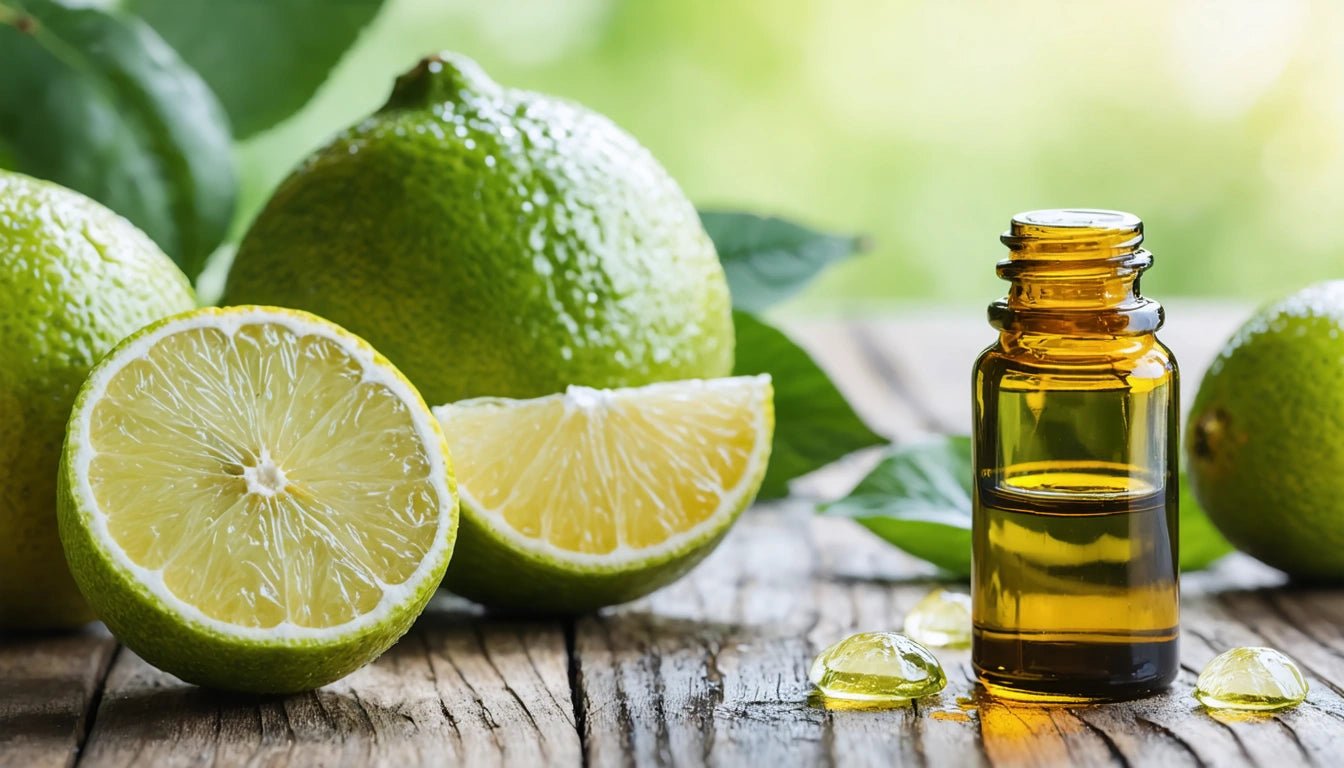Table of Contents
Understanding Oil of Bergamot: Uses, Benefits, and Origins
Oil of bergamot stands as one of the most versatile essential oils in both traditional and modern applications. Derived from the rind of the bergamot orange (Citrus bergamia), this aromatic oil has captivated perfumers, herbalists, and culinary experts for centuries with its complex citrus profile and therapeutic properties.
What is Oil of Bergamot?
Bergamot oil is a citrus-derived essential oil extracted primarily from the peel of the bergamot orange. Unlike common oranges, bergamot fruit is typically not eaten fresh due to its intensely sour flavor. Instead, the fruit's value lies in its peel, which contains specialized glands that produce the aromatic oil. The oil features a complex scent profile characterized by bright, citrusy notes with subtle floral undertones and a spicy, slightly bitter finish.
Chemically, bergamot oil contains several bioactive compounds, including limonene, linalool, linalyl acetate, and bergapten. These compounds contribute to both its distinctive fragrance and its therapeutic properties. The oil is typically extracted through cold-pressing the fruit peel, preserving the delicate aromatic compounds that might be damaged by heat-based extraction methods.
Historical Origins and Production Methods
The bergamot orange is believed to be a natural hybrid of bitter orange and lemon or lime. While its exact origins remain somewhat disputed, many historians trace its cultivation to the Calabria region of southern Italy, which remains the primary global producer of bergamot oil today.
The name "bergamot" likely derives from the Italian city of Bergamo, though the connection between the city and the fruit remains unclear. Historical records indicate that bergamot oil became commercially significant in the 17th century, particularly after it became the defining ingredient in Earl Grey tea.
Traditional production involves cold-pressing the peels of nearly ripe bergamot fruits. Modern methods have refined this process, but premium bergamot oil is still produced using mechanical extraction without chemical solvents or heat, preserving the oil's natural composition and therapeutic properties.
Therapeutic Benefits and Aromatherapy Applications
Bergamot oil has earned significant attention in aromatherapy circles for its psychological and physiological effects. Research suggests it may help reduce anxiety and stress levels when used in aromatherapy. The oil's composition, particularly its linalool content, appears to affect the central nervous system in ways that promote relaxation without sedation.
Common aromatherapy applications include:
- Diffusion for mood enhancement and stress reduction
- Topical application (when properly diluted) for skin conditions
- Inhalation for respiratory comfort
- Addition to baths for relaxation
For those interested in exploring the full spectrum of essential oils, understanding the differences between essential oils and fragrance oils can help ensure you're selecting the right product for your needs.
Culinary Uses and Flavor Profile
Perhaps the most famous culinary application of bergamot oil is in Earl Grey tea, where it imparts its distinctive citrus-floral character to black tea leaves. However, its culinary uses extend far beyond tea:
- Flavoring in confectionery and desserts
- Aromatic component in certain liqueurs and cocktails
- Ingredient in specialized marmalades and preserves
- Accent flavor in Mediterranean cuisine
When cooking with bergamot oil, it's crucial to use food-grade products specifically labeled for culinary use. The concentrated nature of the oil means that only tiny amounts are needed to impart significant flavor. For those exploring alternatives to traditional oils in cooking, our guide on oil alternatives provides additional insights.
Skincare Applications and Formulations
Bergamot oil features prominently in natural skincare formulations, though its use requires careful consideration. The oil contains compounds called furanocoumarins (particularly bergapten) that can cause photosensitivity, potentially leading to increased sun damage if applied to skin exposed to UV light.
Modern skincare products typically use bergapten-free or bergapten-reduced bergamot oil to avoid this effect. When properly formulated, bergamot oil may offer several skin benefits:
- Potential antimicrobial properties for acne-prone skin
- Aromatic benefits in cleansers and toners
- Balancing effect on oily skin
- Fragrance component in natural perfumes
For those interested in natural skincare ingredients, our comprehensive guide to natural oils and butters provides context for how bergamot compares to other botanical extracts.
Buying Guide: How to Select Quality Bergamot Oil
When purchasing bergamot oil, quality varies significantly based on sourcing, extraction methods, and processing. Premium bergamot oil should:
- Be packaged in dark glass containers to protect from light degradation
- Specify the extraction method (cold-pressed is preferred for therapeutic uses)
- Include the botanical name (Citrus bergamia)
- Indicate whether it's FCF (furanocoumarin-free) for skincare applications
- Come from reputable suppliers with transparent sourcing practices
Many consumers appreciate specialized retailers that focus on quality natural products when sourcing essential oils like bergamot, ensuring they receive authentic oils with optimal therapeutic properties.
For additional guidance on purchasing essential oils, our guide to buying essential oils offers valuable insights into evaluating quality and authenticity.
Integrating Bergamot Oil into Modern Wellness Practices
As interest in natural wellness solutions continues to grow, bergamot oil has found its place in contemporary health practices. Its versatility makes it valuable for creating personalized wellness rituals, from custom aromatherapy blends to signature home fragrances.
The oil pairs particularly well with lavender, clary sage, and other citrus oils in diffuser blends. In skincare, it complements ingredients like jojoba oil, which offers non-comedogenic properties that make it suitable for various skin types.
As research into essential oils continues, bergamot may reveal additional benefits beyond its traditional applications. Current studies are exploring its potential effects on mood regulation, sleep quality, and even certain aspects of metabolic health, suggesting that this centuries-old botanical extract may continue to find new applications in our modern wellness landscape.



















